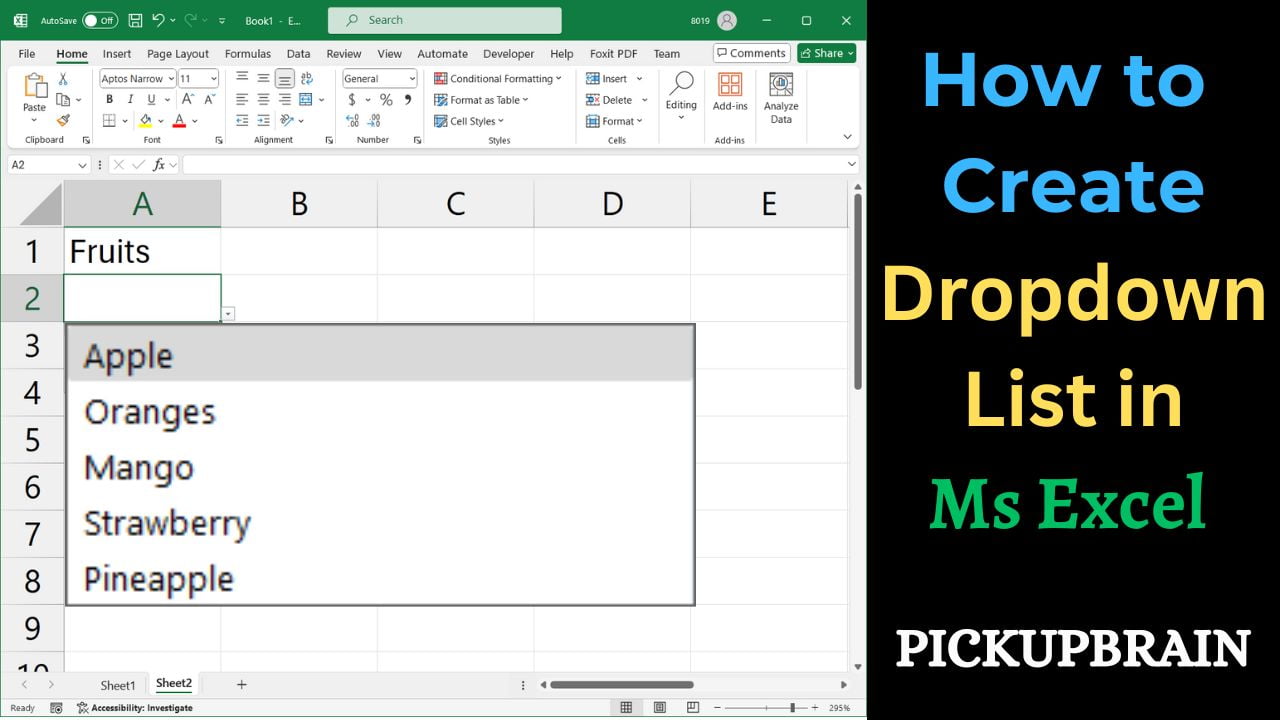Picture this: You are doing something really complicated in Microsoft Excel and you find yourself typing over the same data repeatedly. What if you could make the process less time-consuming and error-prone with a little more uniformity in your entries? Welcome to the dropdown list or as I like to call it, your new best friend in Excel. Streamline data entry, reducing errors, and enhancing user experience—all with a simple click. In this guide, we’ll explore how to create dropdown lists in Excel, step by step tutorial along with Video demonstration. Whether you’re a beginner or an advanced user, this comprehensive tutorial will empower you to harness the full potential of dropdowns. Let’s dive in!
Step-by-Step Instructions
1. Prepare Your List Items
The first step: compile the list of items you want in your dropdown. Ideally, organize them in an Excel table for easy management. If you haven’t already, convert your list to a table by selecting any cell range and pressing Ctrl+T. Tables automatically update as you add or remove items, ensuring your dropdown remains up-to-date.
2. Select the Cell for Your Dropdown
- Choose the cell where you want the dropdown to appear.
- Go to Data tab on the Ribbon and click Data Validation.

3. Configure Data Validation Settings
- In the Allow box, select List.
- In the Source box, specify your list range (e.g.,
Cities!A2:A9). Exclude the header row to prevent it from being a selection option.
- Check the Ignore blank box if empty cells are acceptable.
- Enable the In-cell dropdown option for a seamless user experience.
4. Customize Input Messages and Error Alerts (Optional)
- Input Message: If you want a message to pop up when users select the cell, provide a brief title and message (up to 225 characters).

- Error Alert: To prevent invalid entries, set up an error alert. Choose from options like Information, Warning, or Stop. Craft a relevant title and message.

Video Demonstration
Conclusion: Empower Your Excel Workflow
By mastering dropdown lists, you’re not just adding a feature; you’re enhancing your efficiency. Whether managing project statuses, product categories, or employee names, dropdowns simplify data entry and improve accuracy. Now, go ahead—create your dropdowns and elevate your Excel game!
Remember, the key lies in simplicity. Happy Excel-ing! 🎉
Feel free to ask if you need further clarification or additional tips!
Related Posts

C P Gupta is a YouTuber and Blogger. He is expert in Microsoft Word, Excel and PowerPoint. His YouTube channel @pickupbrain is very popular and has crossed 9.9 Million Views.



